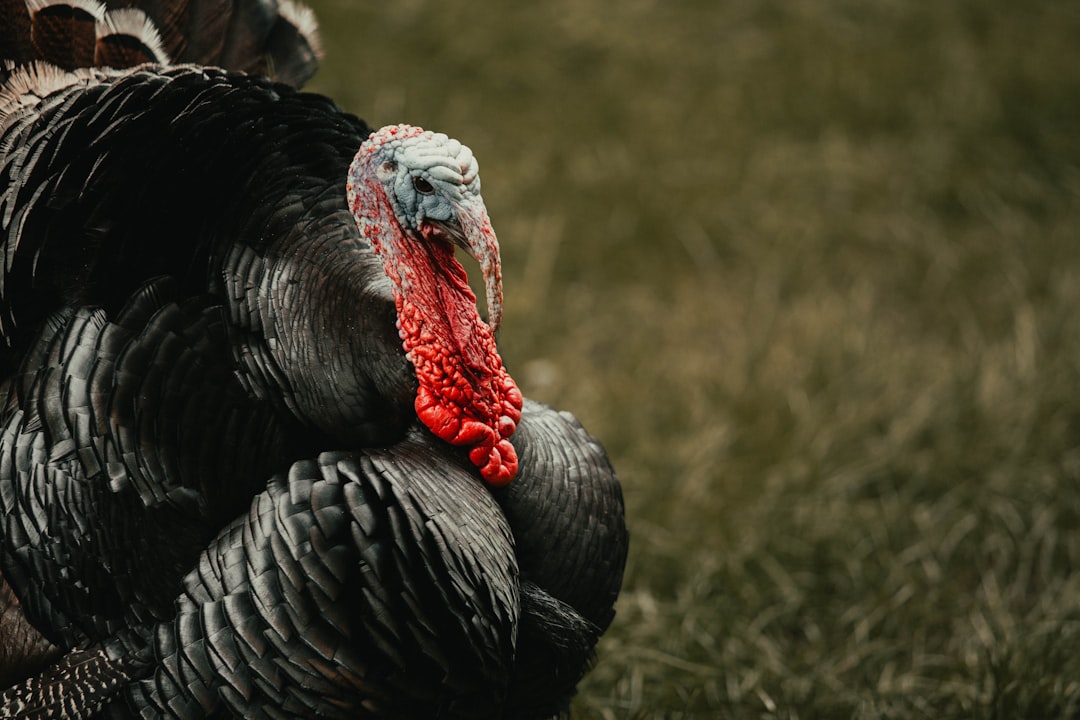PointsBet’s US fire sale
PointsBet was in a corner in the US, analysts react to Aristocrat/NeoGames deal, Kindred for sale +More
Good morning. In this month’s Due Diligence:
PointsBet US sale to Fanatics avoided a cash raise.
The analysts run the rule over Aristocrat’s big online move.
And E+M takes a look at Kindred’s strategic review.
Everybody knows the pain; anyone in this place can tell you to your face.
Value destruction
The price tag for PointsBet’s US business says a lot about the value of the business.
Save yourselves: PointsBet CEO Sam Swanell told the Australian Financial Review in the wake of the sale of his company’s US business to Fanatics for US$150m yesterday that the deal wasn’t just about the low price tag.
“When you think about the deal, you’ve got to think about it in terms of the headline price, but also the fact that we’re preserving the capital that we have on the balance sheet,” he told the paper.
PointsBet’s remaining financial commitment to the loss-making business is now capped at US$21m.
Fanatics “takes over the investment into the US business, bar $21m, which we’ve agreed to sort of cover as part of the swings and roundabouts”.
TINA: Yesterday’s statement suggested that PointsBet felt it was effectively a forced seller.
“PointsBet’s current corporate cash balance is insufficient to fund the US business through to profitability and, as such, should the proposed transaction not proceed, the company would need to raise additional capital in the near term,” the statement read.
Dilution: Add in “presently very challenging” market conditions and any equity capital raised right now “would likely need to be raised at a substantial discount to recent market prices”.
“Moreover, there can be no guarantee that additional capital could be raised at all in the near term.”
Cash crater: Still, the $150m sale price and the $21m cap on further losses mask the scale of the losses caused by the US venture. Since listing in June 2019, PointsBet has raised close to A$850m.
In September 2020 it raised A$353m.
In August 2021 it raised a further A$400m.
Then in June last year, Susquehanna, via its SIG sports vehicle, bought a 12% share in PointsBet for a further A$94m.
It left SIG as the company’s largest shareholder.
Bottom line: Against the money raised must be listed PointsBet’s losses. In FY21 pre-tax losses hit A$448m, in FY22 it was A$268m and by H123 losses came in at A$178m.
At the time of its half-year, PointsBet was left with cash of A$387m. Hence, the warning contained within the Fanatics announcement regarding the need for further funding if the business were to continue.
It was already clear this year that PointsBet was mindful that it was running out of runway. The decision not to enter Massachusetts, for instance, was clearly a response to the wish to constrain further spending on new markets.
Meanwhile, the company’s attempt to maneuver its way out of the expensive – or some might say ruinous – NBC deal spoke to a desire to cauterize the wounds.
Buy the rumor, sell the fact: The extent to which investors in PointsBet were aware of the value destruction was evident in the reaction of the share price yesterday, down over 20% and reversing the gains from the past fortnight.
As Chris Lynch from Citizens Financial Group tweeted yesterday, based on that reaction it seems far from certain the deal receives shareholder approval.
Rattus Norvegicus: Yet, the exiting of the company suggested that faith in its prospects is fading and investors are fleeing.
Eyes on the prize: The team at EKG said that the inclusion of the Banach trading business as part of the deal was a “core driver”, thanks to its potential to provide “differentiated, price-driven products” such as micro-betting, no delay in-play and in-house SGP.
Recall, PointsBet paid $43m to acquire Banach in Apr21 and EKG suggested its current market value, given the soaring importance of SGP and in-play betting, “is double or triple that”.
Theme park: The coincidence of the Fanatics/PointsBet and Aristocrat/NeoGames deals provides fodder for those who believe a period of sector-defining M&A is overdue. “M&A will re-emerge as a theme in 2023 alongside wide variances between large-cap and small-cap iGaming valuations,” said the team at Roth MKM.
Always with the negatives: The team added that the deal for PointsBet is a negative for DraftKings.
“If Fanatics can assert meaningful OSB market share in the US, we’d expect meaningful share losses for FanDuel and DKNG, which maintain over 80% share combined.”
JMP agreed, suggesting in the short term the pressure of Fanatics’ greater presence would apply to the mid-tier operators before having an impact further up the chain.
“The potential size and scale of the Fanatics wagering business does not have the first-mover advantage, but time will allow it to chip away at market share, like FanDuel is trying to achieve on the iGaming side of its business.”
** SPONSOR’S MESSAGE** BettingJobs is the global leading recruitment solutions provider to the iGaming, Sports Betting and Lotteries sectors. Boasting a 20-year track record supporting the iGaming industry, and with a team of experts and world class knowledge, it’s no surprise BettingJobs is experiencing rapid growth with outstanding results. Does your company have plans to expand teams to cope with strong growth and demand?
Contact BettingJobs.com today where their dedicated team members will help you find exactly what you are looking for.
Analyst takes – Aristocrat/NeoGames
Whether Fanatics stole Aristocrat’s thunder or vice versa, Aristocrat’s bid for NeoGames gained the analyst plaudits.
Ground control: The $1.2bn offer for NeoGames gives Aristocrat a foothold in three key online supply markets, namely iLottery, OSB and online gaming, and also a business that, as the team at Macquarie pointed out, has been “profitable for a while”.
“The company has also been disciplined and grounded in profitability,” the team added.
Value proposition: Both JMP and Jefferies noted the ~14/15x prospective 2024 EBITDA valuation demonstrated the value in B2B and content provision. In the words of the latter, the deal “validates” their view that the digital online sector is “undervalued by the US market at present levels”.
This is highlighted by the 129% premium to the share price level at close last Friday.
“There is consolidation value within the digital gaming B2B and B2C landscape and a valuation marker has been set,” the team added.
“In short, the deal brings up the discussion of ‘who’s next?’”
Kindred’s Corvex complexity
Activist investor Corvex is crucial to any discussion of Kindred’s ‘strategic alternatives’.
Up for grabs: The news in late April that Kindred was undertaking a “strategic review of alternatives” should come as no surprise given the presence of activist investor Corvex among the shareholder register. The investment manager owns 15% of Kindred.
Meisterwork: Led by hedge fund veteran Keith Meister, Corvex is known to have been pushing for a sale of the business ever since it last bolstered its holding in August last year.
The investment manager has lobbied for – and succeeded – in getting a seat on the board. That is currently filled by Corvex partner James Gemmel.
Riders on the Strom: A persistent stumbling block to Corvex’s ambitions has been the ex-founder of Unibet and still a shareholder in Kindred, Anders Strom.
His position on a sale of the company remains an unknown.
Early doors: The process is in its early stages and Kindred has stated that either a full or partial sale was possible so that it could “maximize the value” of its assets. But with the blue touch paper of M&A having been lit once again this week, it is easy to foresee events elsewhere having an impact.
Smörgåsbord: With industry sources suggesting “all options were on the table,” it was already felt before yesterday’s news that Kindred now wanted to reach a resolution “reasonably quickly”.
Kindred spirits: The bookmaker’s most recent figures suggested it has turned a corner following a tough Q4 and disappointing post-World Cup trading. Revenues were up 24% YoY to £306m and underlying EBITDA jumped more than 100% to £49m in Q1. But issues persist.
Mind the rake: Kindred’s mis-steps when it comes to regulation are legion, having been tripped up or stumbled in most of its main markets.
While most have been resolved – albeit at a cost generally to Kindred’s market share and bottom line – the company’s Norwegian position remains a complication.
The last turkey in the shop: Still, as one source put it, Kindred remains “one of the last big, mature, multichannel, pan-European operators” with a wide European footprint. However, the US position is literally nothing to write home about (the cost of the airmail would likely exceed current revenues).
For some in the European sector, a move for Kindred could be “highly complementary in terms of digital scale and footprint”, said one.
Meanwhile, Kindred is also well down the path to owning its own proprietary tech platform having resolved its long-standing relationship with partner Kambi.
According to the presentation given at its investor day late last year, the new platform is set to be launched in test markets towards the end of this year.
Just sayin’: On MGM’s recent earnings call, the company said among its ‘wants’ for its LeoVegas acquisition/roll-up strategy was a sports-betting platform.
** SPONSOR’S MESSAGE ** Tried, tested and proven over a decade in the highly-regulated US market, and continuing to expand across Europe, Latin America, Asia and Africa. GeoComply harnesses the power of its market-leading geolocation technology to protect against fraud, including fake account creations, bonus abuse, account takeovers, stolen identities, money laundering, and more. Visit geocomply.com.
Analyst takes
Golden Entertainment: The disruption caused by the ongoing renovations at the Strat are a near-term headwind, suggested the team at JMP. While similar disruptions will have continued in Q2, looking into the back half of the year the team believes these headwinds will subside.
Inspired: The analysts at B Riley believe Inspired’s business mix “should carry a premium versus brick-and-mortar weighted supplier peers”. The team added that they believed Inspired “remains in close discussions” with existing and multiple new lottery customers about its NFL virtual sports license.
AGS: Credit Suisse said that there continues to be a disconnect with AGS shares vs its peers, but the team added that until the economic picture becomes clearer that is likely to persist. “It may be difficult for shares to re-rate until the macro is more certain,” they said.
Calendar
May 16: Better Collective (earnings)
May 17: Better Collective (call), Catena Media, Acroud
May 18: Aristocrat
An +More Media publication.
For sponsorship inquiries email scott@andmore.media.










